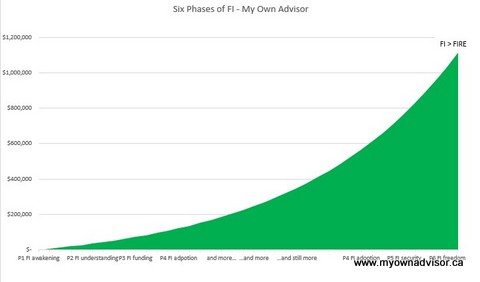By Eric Goldschein
Special to the Financial Independence Hub
If you’ve decided to take the leap and start your own business, you probably have one pressing question on your mind: Where will you get the money to fund it?
Startup costs can drain personal bank accounts, and few business owners are in a position to qualify for affordable small business financing right away. Lenders tend to prefer long-established businesses.
If you’ve been a diligent financial planner and have been saving up for retirement, you may have access to a low-cost source of business funding: your own retirement plans. Here are three ways to use your retirement to fund your dream, whether that’s an e-commerce business or a restaurant:
1.) Use a 401(k) business loan
Some 401(k)s and other eligible retirement plans in the U.S. — 403(b), and 457(b) plans and profit-sharing plans — allow you to loan yourself either US$50,000 or up to half of your vested balance (whichever is less).
If you are testing out your business as a side hustle and will remain employed and contributing to your retirement plan, this is an excellent option. A 401(k) loan gives you access to low-cost funding (interest rates are usually the prime rate plus 1%) that you can use to see if your idea is worth investing in further.
You also won’t pay any additional fees or penalties for taking out this money, unless you default on your payments: in which case the IRS will treat it as a regular withdrawal, incurring penalties.
If you need $50,000 or less to improve your new business, contact your plan administrator to get the ball rolling.
2.) Use a “rollovers as business startups” plan
Do you need more than US$50,000 in business funding, and are you ready to work on your business full time? If so, you can use a rollover as business startups (ROBS) to access funds from a 401(k), IRA, or other eligible retirement account without penalty.
There are a few qualifications you need to meet to use a ROBS plan:
- Your business must be a C-corporation (if it isn’t, you must restructure it).
- Your retirement account needs at least $50,000 in it, and it cannot be a Roth IRA.
- You must be an employee of the business and receive a salary.
The next steps are a bit complicated, but the basics are as follows: Set up a new retirement plan under your C-corp. Roll over your funds from your existing retirement plan to your new one. Then, your C-corp sells stock to the retirement plan, and you use the proceeds from that sale to fund your business—buying new inventory, renovating your space, or any other general business needs. An accountant, lawyer, or financial service can help you do this.
This isn’t a loan, but a constructive use of your retirement funds. The biggest risk here is losing your retirement funds in pursuit of small business success. If you think that’s a risk worth taking, this is a good bet. Continue Reading…







